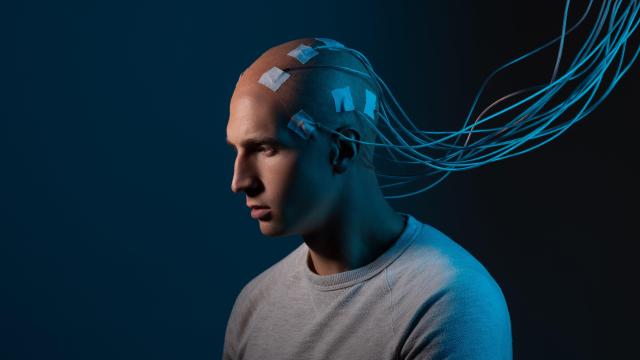The race to implant smartphone technology directly into your brain stem heated up when Neuralink implanted a chip into its first human brain on Sunday. To rival this new step in technology, China set a timeline to develop its own “brain-computer interface” on Monday with products arriving as early as 2025.
China lists a “brain-computer interface” as one of its “innovative iconic products,” according to a translated press release on Monday. In the next several years, the country aims to “make breakthroughs in key technologies and core devices such as brain-computer fusion, brain-like chips, and brain-computing neural models,” said China’s Ministry of Industry and Information Technology.
These early announcements offer a glimpse into, potentially, the greatest international technology battle of the next decade. When someone figures out how to put your smartphone straight into your head, you won’t need to move a muscle to scroll through TikTok, and your body can just become mushy and soft as tech companies steal up your thought data. Instead of working from home, you can work from your brain; it’s a dystopian reality that both China and Elon Musk have been working on for years.
The Ministry of Industry and Information Technology says it would like to develop several easy-to-use brain-interface products. The ministry notes brain technology could be used in driverless driving, virtual reality, and medical rehabilitation. “Brain-inspired intelligence,” also known as generative AI, is cited several times as potentially being compatible with these new technologies.
Last year, the Chinese government opened a 60-person laboratory focused entirely on brain-machine interfaces. The lab is primarily focused on turning its research into practical applications that could compete with Musk’s Neuralink, according to the South China Morning Post.
Researchers in China also developed a computer device that connects to your brain via the inner ear. This device does not require a chip implant, like Neuralink, but can still provide “full-bandwidth data streaming” to the brain, reports The Independent.
Neuralink’s development of inserting a chip into a human brain is a significant one, but the technology is still in its infancy. Musk’s company believes that brain-computer interfaces could help people with disabilities. Neuralink asked people with paralysis, deafness, or vision loss to be the first to participate in its study on brain chip implants.
Your brain is the data centre that tech companies have been after for the last two decades. With social media algorithms and internet tracking, such as cookies, tech has slowly been gaining an understanding of everything that motivates you, excites you, and riles you up.
With brain-computer interfaces, the biological barrier between you and Big Tech would be ultimately erased. Tech would have unfettered access to your thoughts, and could potentially learn everything there is about you. It’s nice to know that some of the most trusted names in tech, Elon Musk and China, are pioneering the latest terrifying wave of technology.
